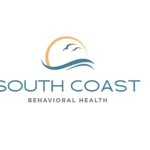Anyone in recovery from substance abuse will tell you that keeping a positive attitude is half the battle. Staying positive is critical for preventing relapse as well as maintaining healthy habits that will help you reach and maintain sobriety.
But sometimes that can be difficult. If you or a loved one are going through recovery right now and are struggling with mindset, you’re in luck! We at South Coast Behavioral Health have compiled a helpful list of tips for staying positive in recovery.
Why is Staying Positive in Recovery So Hard?
Staying positive in recovery is hard because change is hard. You may have gone months or years in your current lifestyle – you now have an entire routine and social life built around abusing substances. Going into recovery means leaving all that behind – plus possibly taking time off of work.
Not only is this stressful, but it can also lead to self-doubt, especially if you haven’t gone through recovery before. You might be fearful you will relapse. Ironically, this fear of relapse can make it more likely by triggering negative thoughts and emotions, leading you to doubt the efficacy of the recovery process itself. This is one of the main risk factors behind addiction relapse.
Another reason why staying positive in recovery is hard is that the process can be physically and emotionally exhausting. Addiction takes a significant toll on the body and mind, and the recovery process can be just as draining. The intense emotions that come with recovery, such as shame, guilt, and regret, can be overwhelming and make it difficult to stay positive.
Get confidential help from our addiction treatment specialists in Orange County. Call to join our rehab program today!
Call 866-881-1184Ten Tips for Staying Positive in Recovery
Here are ten tips for staying positive in recovery:
- Set realistic goals: Setting goals is essential to recovery, but make sure they are attainable. Unrealistic goals can set you up for failure, leading to you potentially feeling discouraged and other negative emotions.
- Celebrate small victories: Every small achievement is a step towards recovery, and it’s important to recognize and celebrate them. This will help keep you motivated and positive.
- Practice self-care: Self-care is crucial in recovery. Take time to do things that make you feel good, like exercising, meditating, or spending time with loved ones. Taking care of your body will make you feel better mentally as well as physically.
- Stay connected: It’s important to stay connected with others who are also in recovery. Attend support group meetings, connect with peers online, or join a sober living home.
- Avoid triggers: Identify and avoid triggers that can lead to relapse. This may mean avoiding certain people, places, or situations.
- Accept yourself: Recovery is a process, and it’s important to be patient and kind to yourself. Remember that you’re human – it’s okay to make mistakes – and that setbacks are a part of the journey.
- Focus on the present: Try not to dwell on the past or worry about the future. Instead, focus on the present moment and the progress you’ve made.
- Gratitude: Practicing gratitude can help shift your focus from negative to positive. Take time to reflect on the things in your life that you’re thankful for.
- Help others: Helping others can be a powerful way to stay positive in recovery. Volunteer at a local charity or mentor someone who is struggling with addiction.
- Stay optimistic: It’s important to stay optimistic and believe in yourself. Smile, say mantras to yourself, and just keep faith in your own abilities.
What Are the Benefits of Positive Thinking?
Positive thinking has a myriad of benefits for someone’s recovery journey. One of the main advantages of positive thinking is that it helps people maintain a positive mindset and a hopeful outlook, even in the face of setbacks. This allows people to stay motivated and inspired to continue working towards their recovery goals, which can be crucial in achieving long-term success. When life gets hard, it is easier for people to stay sober because they know that they can overcome any challenge. On top of this, positive thinking encourages a problem-solving mindset and collaboration, so people know that they can lean on their friends and family if they need help.
In addition to enhancing motivation and inspiration, positive thinking can also help individuals manage stress more effectively. By focusing on positive thoughts and emotions, people can reduce their anxiety levels and create a sense of calmness and inner peace. This, in turn, can help individuals cope with triggers and cravings that may arise during the recovery process.
Maintaining a good attitude extends far beyond your mental health, with benefits extending to your physical health as well. For example, evidence suggests a positive attitude can strengthen your immune system response. Conversely, a study in the Journal of Personality and Social Psychology found that extended periods of negative thinking were associated with reduced feelings of well-being.
Can Therapy Help With Positive Thinking?
If you are having trouble staying positive in recovery, therapy can help. Specifically, cognitive behavioral therapy, also called CBT. In cognitive behavioral therapy, a professional counselor or therapist can help you identify and challenge negative thinking, and provide the tools needed to build and maintain a positive attitude. Our residential treatment program includes cognitive behavioral therapy, along with other research-based therapy modalities. If you are suffering from depression or another dual diagnosis mental health issue, cognitive behavioral therapy has been shown to be an especially effective treatment, particularly when paired with medication.
If you are interested in learning more about mental health treatment with South Coast Behavioral Health, call us at 866-881-1184. We look forward to helping you on your recovery journey, because we care.
REFERENCES:







